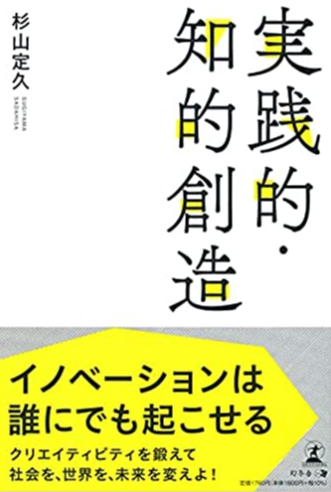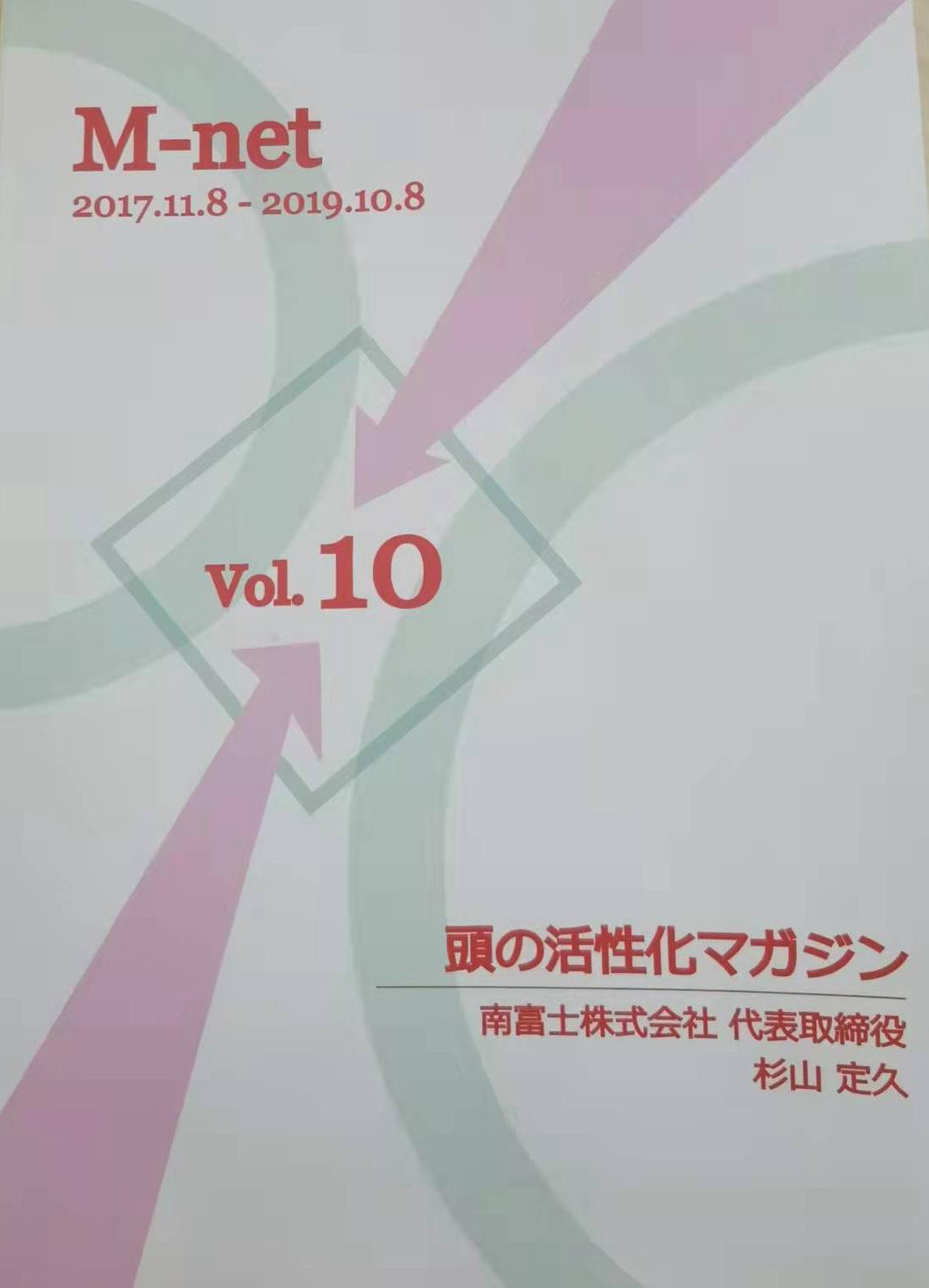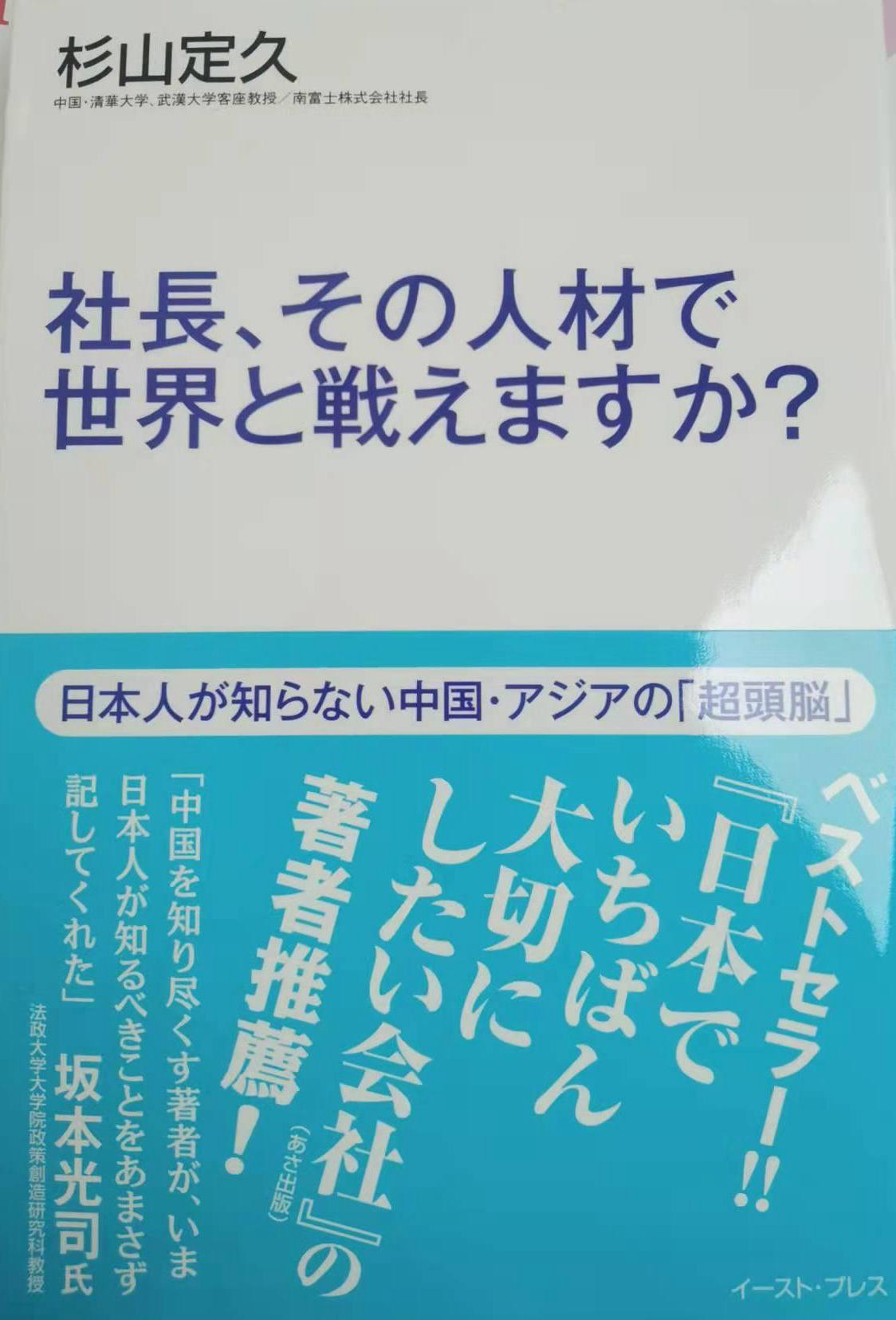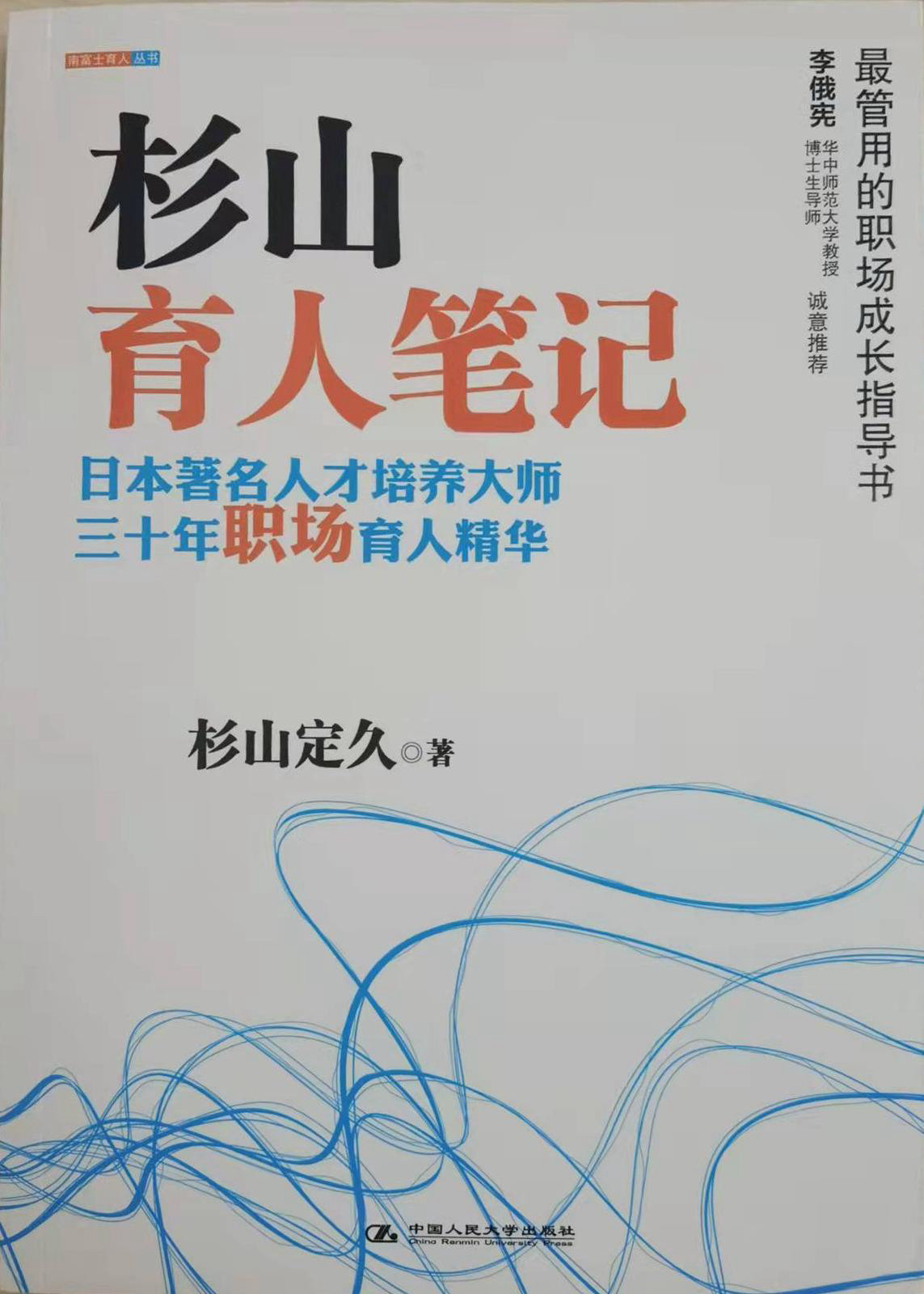Lesson from master of Japanese degree : Start with what is in front of you and move forward step by step
A language major graduates of the arts living in the work of a little share, I hope to give you who face troubles in the job a little references
A language major graduates of the arts living in the work of a little share, I hope to give you who face troubles in the job a little references 1. Confirm with the others whether the message you understand is the intended message 2. Recognize the problem first, and then focus on improving it. 3. Ability to comb and integrate information 4. Ability to use office software and other tools
· Academic Background (Undergraduate: Japanese/Master: Japanese Language and Literature, one year overseas study experience)
I majored in Japanese during my four-year undergraduate study and my three-year master's degree. I had one year to study in Tokyo from the second semester of my second postgraduate study to the first semester of my third postgraduate study.
For my undergraduate studies, my university is located in Yunnan, where there are few Japanese enterprises and people. Therefore, Japanese was not an advantageous subject at that time. For learners of minor languages, the ability to communicate fluently in a foreign language (both written and spoken) is their greatest competitiveness. Therefore, when I realized this in my freshman year, I deliberately seized every opportunity to communicate with Japanese people to improve my oral Japanese level. Including ① communication with foreign teachers, ② communication with Japanese college students who come to our university, ③ actively striving for the opportunity to go to Japan, ④ actively participating in Japanese translation and other volunteer work of Nan expo. Therefore, at the end of my undergraduate study, I already had some ability to communicate in Japanese.
As for the master's degree, I was lucky enough to be admitted to a university in Guangdong province. In addition, one of the three years of postgraduate life was spent studying abroad in Tokyo. In addition to a higher platform and a broader vision, what has the greatest impact on me is the change in my way of thinking brought by academic training, which has also been applied to my work. That is, background check -- ask questions -- solve problems.
Graduate school in the second semester, I missed the autumn recruitment is actually very confused. My advantage is that in general, my Japanese listening, speaking, reading and writing skills are not bad in both undergraduate and master stages, and there is no problem in normal use of Japanese as a tool. The disadvantage is that I don't seem to have much expertise in other than Japanese, so I am still confused about finding my position in the job market. However, I have roughly determined a direction in my mind. My first wish is to work in Japan; my second wish is to use Japanese as a tool to enter an industry to maximize my competitiveness.
· Work Experience
In addition to various exhibition translation, I worked as a Japanese teacher in a training institution during my senior year and master's degree, and worked as an intern in a Branch store of Japan Airlines in Guangzhou during my master's degree. During my study in Japan, I also actively participated in various part-time activities. The purpose of these activities is the same: to use Japanese as much as possible to improve your proficiency in the language.
I was actually quite nervous coming back to school in the second semester. Because most of my classmates had jobs, and I was at a loss. At that time, I thought I needed an offer anyway, so I participated in the recruitment of a Japanese teacher in a private high school in Shenzhen and got the offer successfully. However, the job of Japanese teacher is actually not in line with my own job hunting direction: although I also use Japanese to work, the essence of the education industry still depends on language, and I hope to be able to engage in a job with language combination and technical nature. Then I saw the recruitment information of GMC in the school group. After submitting my resume to participate in the GMC project and the final interview, I was lucky to get the offer of Cosmetic company.
I always feel very lucky, because company is really a new friendly company: the personnel system is sound, abide by laws and regulations, the boss actively and seriously cultivate subordinates, and you can always ask the seniors around if there is something unclear. In short, company is a friendly workplace where you just need to think about learning how to work and how to put things into practice.
The sales method of company in China is to give part of the brand to the general distributor (general agent). I am responsible for docking with the general agent, and my position is sales for key accounts. The main tasks include: (1) product order reception-shipment-payment, (2) product purchase, sales and inventory data analysis, (3) new product development and product education, (4) new project development and contract signing, (5) translation work, (6) general agent put forward other assistance, etc. Of course, these work contents were gradually mastered in two years, and the guidance and assistance of my boss and colleagues enabled me to get a lot of growth in these two years. In my heart, I am very grateful to them for all their efforts to cultivate me.
· Impressions of GMC
Before joining GMC, I actually had a very vague understanding of this project. I thought it was just a simple interview, but I didn't realize that what we needed to do was to conduct research and publish results for the company we were going to interview.
From the topic to complete the degree itself, now look back to actually the content is very immature. The main reason is that I think a group of white people without actual work experience do not have a clear concept of "work" and are unfamiliar with how to find the right entry point. (Although I have made a lot of presentations in school, their essence is the same. But there are fundamental differences in perspective and approach.) Moreover, all the information we can collect is public data on the Internet, so there is no way to conduct targeted analysis. Here I have realized that as a pure liberal arts student majoring in language, I am very deficient in data collection and analysis. However, my internship experience in the service industry and education industry can provide little experience support for such a job. In this sense, the GMC project was an hors d 'oeuvre on the eve of a formal job, giving me a vague idea of what "work" was.
From my personal experience, I think the most meaningful thing I get from GMC is the experience of working together with my friends for the same goal. We established "revolutionary friendship" during the all-night discussion. The partner who can fight side by side is another motivation for me to stick to it besides the sense of achievement in work. Thanks to the GMC project, we have gained companions that we can trust each other.
· Work Feelings
company is a traditional Japanese company with a history of nearly 90 years. And I was very lucky to meet a good and willing to train me such a white boss. Benefiting from this, ALTHOUGH I am working in company , my personal ability has been greatly improved through this job. company is more like a university for me.
As for my work experience, I would like to share with you the skills needed in the workplace. Depending on the job and industry, of course
I believe that each job requires different skills, so I would like to briefly share a few of the skills THAT I have summarized from my own experience in the job.
① Communication skills and teamwork skills
I personally believe that quality communication is the key to doing a good job. Communication here is not just about foreign language ability. Of course, for the position requiring foreign language ability, good language level can improve the quality of communication. The ability to communicate that I'm talking about here is the ability to understand what the other person is trying to say and the ability to say what you're trying to say. Simply put, when communicating, both sides should speak on the same channel. Those with work experience will surely understand that if both parties cannot understand the intention of each other, they will repeatedly explain the same problem and fail to advance the next topic, and even the project will grow in different directions. All of this adds significantly to the cost of communication.
One of the tips I've come up with is to reframe the background of the project at the beginning of the communication, which is a consensus-building process. In particular, a very important part of my work is to interpret for both Sides of China and Japan (General agent of China and Nalisi). After establishing the general premise, I can carry out communication under this premise, which will be relatively more efficient. Of course, there are also communication difficulties caused by different positions or different understanding backgrounds. At this time, it is also necessary to timely supplement the content of poor information to promote smooth communication.
The second tip is to check with the other person to see if the message you understand is the intended message. My experience is that after a discussion, I repeat what I have written down to make sure that I have correctly understood the other party's intention. Only when both sides understand each other, can the project proceed smoothly.
② Awareness and problem-solving ability
I put the two together because I think they go hand in hand. The first step is to recognize what the problem is, and then you can target improvements.
Taking communication as an example, when the other person's answer is not what you want, the first thing I have to consider is "Is my way of asking confusing the other person's understanding?" "Then change the wording of the question and ask again. Because I do a lot of interpretation, sometimes there will be "questions not answers" situation. Sometimes the reason is that my translation content is vague and leads to ambiguity, and sometimes the two sides give different answers to the question.
This is actually a process in which the two parties have a communication deviation (consciousness problem) - change the way of expression or supplement the poor information (problem solving). Of course, this process may not be so ideal in practice, but the method is the same.
③ Ability of information combing and integration
My personal definition of this ability is to think clearly.
Because of the nature of my work, my position is a "upload and transfer" position. Whether it is receiving orders or developing new products, information needs to be received and conveyed between China and Japan, and sometimes it even needs to help The Chinese side clarify its own needs. When many projects are promoted in parallel, I need to be able to grasp the key points of each project, and timely report the progress with my boss and get confirmation of the progress as required.
When I report to my boss, I make a simple note of the items I need to confirm: itemize them and write down key words. This not only saves the time to sort out notes, but also improves the efficiency of the report.
In my work, I also encountered some random questions to ask me, which led to a problem: in many cases, he would be taken off the subject by his extended questions and get away from his original need to confirm the questions. In addition, his thoughts were confused when communicating, and he often did not know what he was asking.
④ Ability to use office software and other tools
I'm not going to go into that because it's so simple. The reason I put it last is because it's important, but it's just a tool skill, and if you use it in the wrong direction, it doesn't necessarily add to your job. Truly great leaders care more about the value of content than the gloss. Of course, using software well will certainly increase productivity.
Above is I as a language major graduated from the arts in the work of a point to share. Although it has a certain individuality, but I hope it can provide a little reference for you who are worried about finding a job.





